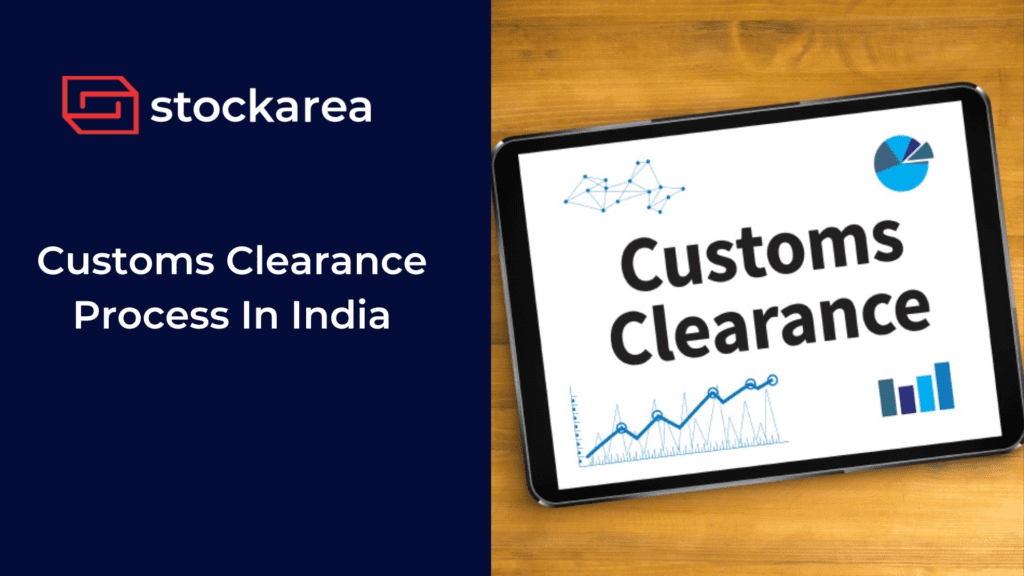Understanding The Customs Clearance Process In India
Customs clearance is the procedure of facilitating the import or export of goods through customs. It entails a series of regulatory requirements that must be adhered to to guarantee compliance with both local and international laws. The customs clearance process requires the issuance of necessary permits and licenses, the determination of applicable taxes, duties, and tariffs, and the verification of the contents of the shipment. The efficient movement of goods across borders is contingent upon customs clearance, and failing to adhere to the regulations may lead to customs enforcement actions.
Key Steps In The Customs Clearance Process
1. Gathering The Required Documents
The initial step in the customs clearance procedure is to verify that all required documentation is in order. This comprises the commercial invoice, packing inventory, bill of lading, certificate of origin, and any other permits or certificates that may be necessary.
2. Arrival Of Goods At The Port Of Entry
Customs authorities receive the shipment at the entry port, and the customs clearance procedure commences. It begins with the examination of the products based on their arrival at the docks. The port authorities verify the quantity of the products and the documents.
3. Filing Of Bill Of Entry
The importer requires an electronic filing of the bill of entry related to the products before the shipment’s arrival. According to the specifications, it will include pertinent information regarding the products’ duty. After authenticating the bill of entry, the importer is required to pay the appropriate GST amount. These details would be recorded in the Indian Customs Electronic Data Interchange System (ICEDIS).
4. Customs Examination Of Goods
To ensure the accuracy of the import declaration and compliance with regulations, customs authorities may conduct inspections of the goods. These inspections can include physical checks, laboratory testing, or X-ray scans.
5. Assessment Of Customs Duty & Taxes
Customs authorities assess the applicable duties and taxes based on the information provided in the Entry Summary Declaration and the results of the commodities investigation.
6. Clearance Of Goods
The importer can receive clearance for his goods upon presenting the customs clearances to the port authorities. Imported goods can be delivered effortlessly once the bill of entry procedure is completed in a legalized manner.
Documentation Requirements For Customs Clearance
Documents that are necessary for custom clearance services include the following:
Documents For Import
- Bill of Entry
- Airway Bill
- Bill Of Lading (If products are imported via ship)
- Import License
- Letter Of Credit
- Excise Duty
- Import Certificate
- DGFT Declaration
- Commercial Invoice
- Shipping Bill/Postal Bill of Export/Bill of Export
Documents For Export
- Customs Declaration
- Commercial Invoice
- IEC Certificate
- Export order/purchase order
- Export license
- Commercial invoice
- Packaging List
- Certificate Of Shipment
- Quality/Inspection Certificate
Customs Clearance Charges In India
For international brands entering the Indian market, meticulously accounting for customs clearance charges is paramount for effective cost management and budget planning. Let’s understand the breakdown of these charges.
1. Handling Fees
Various agencies and personnel are involved in handling imported products during customs clearance. Accordingly, processing fees are assessed to compensate for the operational expenses associated with these operations.
2. Storage Charges
Storage charges may be incurred if imported products are temporarily stored in customs warehouses while they are cleared. The duration of storage and the volume of products stored are the determining factors for these charges.
3. Transportation Costs
Transportation costs are charged for the transportation of goods from the port of entry to the customs warehouse or ultimate destination. These costs are contingent upon factors including freight volume, mode of transportation, and distance.
4. Inspection Fees
The compliance of imported products with import regulations may be verified through physical inspections or audits by customs authorities. These inspections incur associated costs, often compensated for through inspection fees levied on the importer.
Conclusion
For a seamless import or export experience in India, navigating customs clearance procedures efficiently is paramount. Businesses that thoroughly understand the requirements, meticulously gather accurate documentation, and adhere strictly to customs regulations can expedite the clearance process, ensuring the unimpeded flow of goods across international borders. This precise approach, coupled with the professional guidance of a customs broker, can enhance your customs clearance efficiency. Furthermore, proactive engagement with the evolving landscape of customs regulations is critical in achieving an efficient customs clearance process.
Frequently Asked Questions (FAQs)
The formalities that ensure compliance with customs regulations are completed by goods entering or exiting India during the customs clearance procedure. Imported and exported products are subject to documentation, inspection, and evaluation.
The declaration value, classification, and any applicable duties are all elements that contribute to the determination of customs clearance charges in India. Customs duties, IGST (Integrated Goods and Services Tax), and additional charges may be included.
Customs clearance can take a variety of hours, contingent on variables including the shipment’s complexity, the customs authorities’ efficacy, and the necessity for supplementary inspections or documentation. Customs clearance typically takes a few days to a couple of weeks. However, for more precise estimates, it is recommended to seek guidance from customs agents or intermediaries.
Related posts
- Top 10 Air Freight Forwarders In India
- Top 10 Ocean Freight Forwarders In India
- 10 Best Cold Storage Companies In India
- 11 Best Third-Party Logistics (3PL) Companies In Kolkata
- How Logistics Industry is getting disrupted
- List Of 11 Best Logistics Companies In India
- What Is Reverse Logistics?
- 7 Steps To Choosing The Right Courier Partner
- 13 Best Shipping Companies In India
- Top 10 Latest Supply Chain Trends In 2024
- 7 Latest Freight Forwarding Trends In 2024
- 10 Tips On Shipping Container Security
- 6 Challenges Faced By Transportation Companies In India
